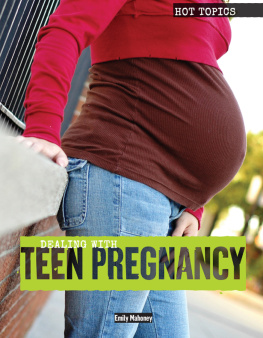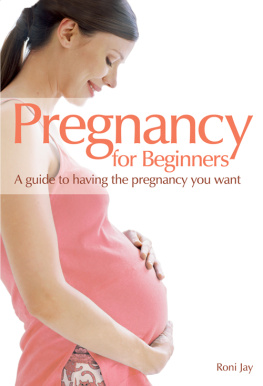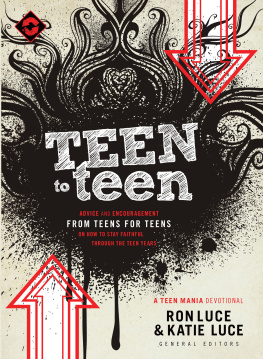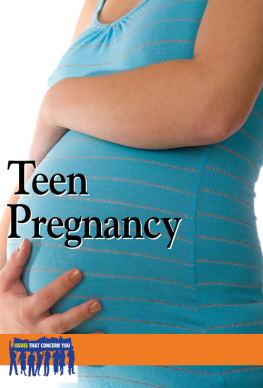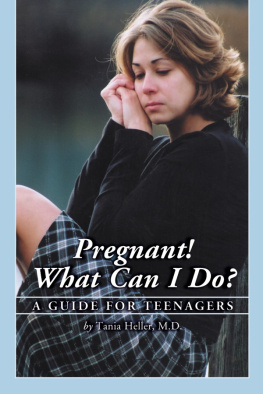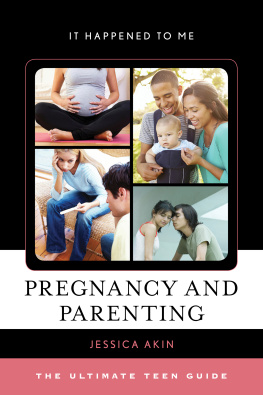T he topic of teen pregnancy is one that is hotly debated in the United States. Some people argue that it is a pressing public health and social problem, while others say that it is not that big of an issue. However, few people would argue that no effort should be made to reduce teen pregnancy rates. Pregnant teens face increased health risks over their peers who do not become pregnant. They also face many emotional and financial challenges as they attempt to raise their children while they are still completing their schooling. The vast majority of babies born to single teens remain at home with their young mothers, Charles Zastrow and Karen K. Kirst-Ashman wrote. This places these young women in a very different situation than that of most of their peers ... The additional responsibility of motherhood poses serious restrictions on the amount of freedom and time available65 for typical teen pastimes such as socializing, going to school, and making career choices. Pregnant teens are certainly at a disadvantage when it comes to living an average teenage life.
This is not to say that every teen who becomes pregnant will have health problems, struggle financially, or even drop out of school. In fact, many teens complete high school and even attend college, despite the fact that they were pregnant at a young age. A young womans life is not ruined if she gets pregnant, but it does lead to a number of complications. For these reasons, many Americans believe that teens should wait until they are adults to become pregnant. Many people also believe it is our responsibility as a society to teach teenagers how to prevent pregnancy so they will not run the risk of encountering these complications.

Many people disagree about how old is old enough to have children.
However, despite the belief that teenage pregnancy has negative consequences, there is some disagreement over teaching teenagers how to prevent pregnancy. First, the age at which a teenager could be considered an adult who is ready for parenthood is widely debated. For example, 73 percent of all teenage pregnancies occur among women who are 18 or 19 years old; by this age, they are considered legal adults who can lawfully marry. People argue that an 18- or 19-year-old who is married is responsible enough to raise a child. Sociologist Karen Sternheimer said, Weve redefined adolescence as an extension of childhood, whereas it used to be a precursor to adulthood.66 Many people also argue that if a teenager is old enough to join the military at age 18, then he or she is old enough to raise a child. We like to infantilize teens, or focus on their bad behavior, even though some of them are functioning as adults,67 Sternheimer explained. For these reasons, some argue that a public campaign is not necessary because it does not apply to all teens who are pregnant.
JUST DONT DO IT
The only thing my mother told me about sex is not to have it. Thats not really an education.
Anonymous girl, age 17
Quoted in National Campaign to Prevent Teen and Unplanned Pregnancy, Parent Power: What Parents Need to Know and Do to Help Prevent Teen Pregnancy. Washington, DC: National Campaign to Prevent Teen and Unplanned Pregnancy, p. 16. www.thenationalcampaign.org/resources/pdf/pubs/ParentPwr.pdf .
The issue of whether, and at what age, teen pregnancy should be prevented has largely become a matter of debate over social values. Many people, teens included, believe the teen years, at least prior to high school graduation, are simply too early for any young adult to become a parent. Other people say the real argument is not about teen pregnancy, but instead about whether teen parents are married and whether unwed pregnancies at any age are appropriate. According to Maggie Gallagher, founder of the Institute for Marriage and Public Policy, What we have called our teen pregnancy crisis is not really about teenagers. Nor is it really about pregnancy ... What has changed most in recent decades is not who gets pregnant, but who gets married.68 Still other people avoid the controversial topic of marriage altogether and say that American society should focus on preventing unintended pregnancy among all women, especially teenagers. According to a report by the U.S. Department of Health and Human Services, The consequences of unintended pregnancy are not confined to those occurring in teenagers or unmarried couples ... for teenagers, the problems associated with unintended pregnancy are compounded ... Reducing unintended pregnancies is possible and necessary.69 However, even if the goal of preventing teen pregnancy is restated as cutting down on the number of unwanted pregnancies among teens, rather than negatively judging teen pregnancy in general, there is still a huge debate among adults and teens alike about the best way to reach that goal.
The Controversy Over Abstinence
Abstinence is the act of avoiding a certain activity as a means of also avoiding negative consequences associated with that activity. In discussions about sex, abstinence means refraining from some or all types of sexual contact with another person. Because abstinence is the only absolute way to avoid pregnancy, many people promote abstinence as the best method of pregnancy prevention that American society can recommend to teenagers. Many teenagers are themselves supportive of abstinence as the one fail-proof way to avoid pregnancy until they are ready. Abstinence is the only surefire way to avoid getting pregnant, Lynne Collenback said. It has become a matter of what I believe is right and wrong for myself.70 Teen abstinence, say its supporters, has the added benefit of preventing the spread of STDs, such as gonorrhea and HIV/AIDS, and it also shifts teenagers attention from sex and its possible consequences, both physical and emotional, to more potentially beneficial pastimes such as school and extracurricular activities.
During the late 1990s and early 2000s, the administrations of former presidents Bill Clinton and George W. Bush both passed measures that supported a national abstinence education program for Americas teens. The policy coincided with changes in the sexual activity and pregnancy patterns of Americas teens, including a 10 percent drop from 1995 to 2002 in the number of high school teenagers who had ever had sex and an approximately 38 percent drop in teen pregnancy rates during the same period. Bruce Cook, a spokesperson for a nonprofit group that supports abstinencefocused education, said, Programs will work that encourage our young people to abstain from at-risk sexual behavior.71 To supporters of abstinence during the early 2000s, it seemed that more teenagers were remaining abstinent longer and that this was reducing teen pregnancy rates. The more teens clearly understand the benefits to abstinence until marriage and the risks of premarital sexual behavior, the more they will make the right choices,72 Cook said. However, studies have since shown that there were likely other reasons for the decline in pregnancy rates.
The idea of abstinence as a national policy for preventing teen pregnancy in the United States has been criticized in part because those who support abstinence, especially abstinence until marriage, may make certain value judgments. For example, they may claim that sexually active teenagers have made poor moral decisions. Not all Americans believe that marriage is or should be a goal for teenagers; therefore, a philosophy that puts marriage before sex simply does not make sense for some teens. A number of people, adults and teenagers alike, also believe that the expectation for teenagers to remain abstinent until marriage, or at least until adulthood, is unrealistic and even counterproductive. They believe that abstinence programs set teenagers up to feel like they have not succeeded at an important expectation if they do have sex. We are training a whole generation that if (actually when) they have sex before marriage, that they have failed, Marty Klein wrote. Almost 90 percent of abstinence pledgers have intercourse before marriageand they protect themselves and each other at a lower rate than nonpledgers.73

